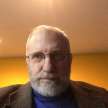
An Alchemical Politics raises challenging questions, as much for the author as for the reader. This novel is a fictionalized exploration of my own heritage. My family is Sicilian on my father’s side, or at least on my father’s father’s side. My grandfather’s attitude towards religion was typical for Sicilian men of his generation: profoundly anticlerical, except for a devotion to the “friar what they are on the side of the poor,” deeply devoted to Mary, a very lightly Christianized form of the ancient Demeter, and understanding Jesus, when he came into view at all, as a socialist who was killed by the police. And as I began to explore the history of popular religion in Sicily, I discovered that this was not atypical. Peasants throughout Sicily and Italy had supported the mendicant orders generally and the Franciscan Spirituals in particular in their struggles with the papacy, not least because the mendicants often supported them in their struggles for land. And Sicily in particular was one of the the most stubborn refuges of the ancient cult of the Magna Mater. Indeed, this whole heritage formed the basis of my doctoral dissertation, Blessed are the Meek: Popular Religion and Political Consciousness in the Italian Immigrant Community (Mansueto 1985).
There was, however, another odd little fact that I noticed about my grandfather. He observed what amounted to some very unusual dietary laws. Not only was pork almost never served at our family gatherings except at the initiative of in laws (my father’s sister’s husband’s family, for example, who were great lovers of grilled sausage —with cheese), but my grandfather would not combine meat and dairy —or, for that matter, any two different forms of protein. I was always told that this was just frugality —he had been trafficked as a child, sold to a blacksmith, and had to steal fish off the docks in order to survive. But then, some years later, I became aware of similar phenomena among some Hispanos in New Mexico, at least some of whom turned out to be conversos. And of course there were Jews and conversos in Sicily as well, which was under Spanish rule at the time of the Reconquista, and where the edict requiring all Jews to convert or leave was enforced by the same Holy Office of the Inquisition.
My interest in this question was only deepened when I read Yirmiyahu Yovel’s work Spinoza and Other Heretics (Yovel 1989) which argues that secularism, and especially the revolutionary secular humanism which finds its expression in the socialist and communist movements, had its origin in the homelessness and liminal identity which the converso experience entailed. And of course Spinoza was the “missing link” in the otherwise broken chain reaching from the Radical Aristotelians (including Moshe Ben Maimon) of the Middle Ages to Hegel, Marx, and their interpreters. And so the communist project, especially in its original, humanistic form as articulated by the early Marx (who was himself, albeit in a somewhat different sense, also a converso), was in many ways a converso project.
During this same period I spent a year teaching at the Universidad Autonoma de Ciudad Juarez, where I conducted research regarding religion and politics (Mansueto 2002) in Mexico, and became convinced that Mexican secularism was, first and foremost, an attempt to create the space for the converso and indigenous identities repressed or assimilated by the Catholic Church.
Finally, as the result of a long process set in motion by a student who made me aware of the profound antisemitism latent in even much “progressive” Christianity (Mansueto 2002), I have gradually moved spiritually towards a more nearly Jewish position —rejecting not just the divinity and messiahship of Jesus, a decision which shaped my career early on by excluding me from positions of authority in the Catholic community into which I was born, but also the larger assimilation of the Jewish practice of da’ath ‘elohim (knowledge of God in the just act), originally part of the the broader project of Tikkun Olam (mending the torn fabric of the universe) to a Hellenistic Roman mystery cult focused on theosis or deification. For years I tried to argue that Christianity had made the Jewish dedication to justice accessible to a broader spectrum of cultures, even if it also hid and distorted it. But as those years passed this became more and more difficult and while there have clearly been many within the larger Christian tradition who have tried to recover the commitment to justice, it now seems to me that Christianity as such is more likely a millennia long imperial ideological operation directed precisely at neutralizing Judaism’s transformative power.
I do not know whether or not I have converso ancestry in the genealogical sense. I don’t have definitive genetic markers for Jewish heritage, though I do have markers for closely adjacent groups. But I do believe that I have a converso soul. As a spiritual communist I inhabit an intellectual and political world created by conversos. And there is a very good chance that my grandfather was either a converso or someone who inhabited that same converso subculture —or rather a somewhat earlier and adjacent one— even if he himself lacked Jewish forebears.
Thus the character of Salvatore/Shmuel, the protagonist of An Alchemical Politics, who rejects his family’s opportunistic conversion to Christianity to embrace, without fully deciding between them, the various strains of Judaism present in late Convivencia Sicily. He then lives out that choice over the course of journeys which take him to all corners of the Old World and finally to a new one.
Salvatore/Shmuel is, first and foremost, an exploration of my own “possible heritage.” As someone who has moved over the course of many years from the Catholic Left to the threshold of seeking conversion to Judaism, I have no hesitation in telling his story. But then stories, like any other use of language, are always an invitation to conversation. And so I welcome and in fact invite reactions —including critical reactions— from within the Jewish community to the story I tell and above all the character I present. Are those of us who inhabit this strange cultural space created by the conversos half a millennium ago (whether by blood ancestry or assimilation and scholarly lineage) now called to return (or take refuge in) the people of Israel? Or are we now forever a non-people —lo-ammi (Hosea 1:9)— defined by the homelessness which is the Third Saeculum? And if so, what precisely is our calling?
I seek reactions as well to Salvatore/Shmuel’s engagements in the Pale of Settlement, in Africa, along the Silk Road and the Spice routes, and then in Azatlan. These engagements speak to another critical dimension of my personal history —a childhood spent traveling the world (my father managed construction projects for various government and other entities, or so he said), much of the time exploring alone in strange cities and remote villages, and the rest of it being gently civilized by the young women who cared for me in my parents’ frequent absence, beginning my initiation in, among other things, the Buddhist dharma. Again, I have no hesitation in telling the story I tell: it is rooted, if indirectly, in my own. But it does require me to create characters from communities very different from my own —communities which have a right to respond to the way in which they are depicted.
In the end the novel reflects a life-long journey on my part, during which I have attempted both to re-root the revolutionary and humanistic spirituality which I developed in my youth in its original Jewish soil, and to bring that spirituality into dialogue with others from which I have also learned, with perhaps the hope for a higher synthesis. The novel leaves Salvatore/Shmuel very much a work in progress and his journey, like my own, in every way unfinished.
I look forward to the discussion.
References
Mansueto, Anthony. 1985. ”Blessed Are the Meek...: Religion and Socialism in the Italian American Community," Proceedings of the American Italian Historical Association. ———. 2002. Religion and Dialectics. Lanham, MD: University Press of America.Yovel, Yirmiyahu. 1989. Spinoza and Other Heretics. Princeton: Princeton University Press.
About the Creator
Anthony Mansueto
I am social theorist, philosopher, political theologian and institutional organizer. I also write fiction which crosses the boundaries between magical realism and science fiction, mysteries and stories of espionage.






Comments
There are no comments for this story
Be the first to respond and start the conversation.